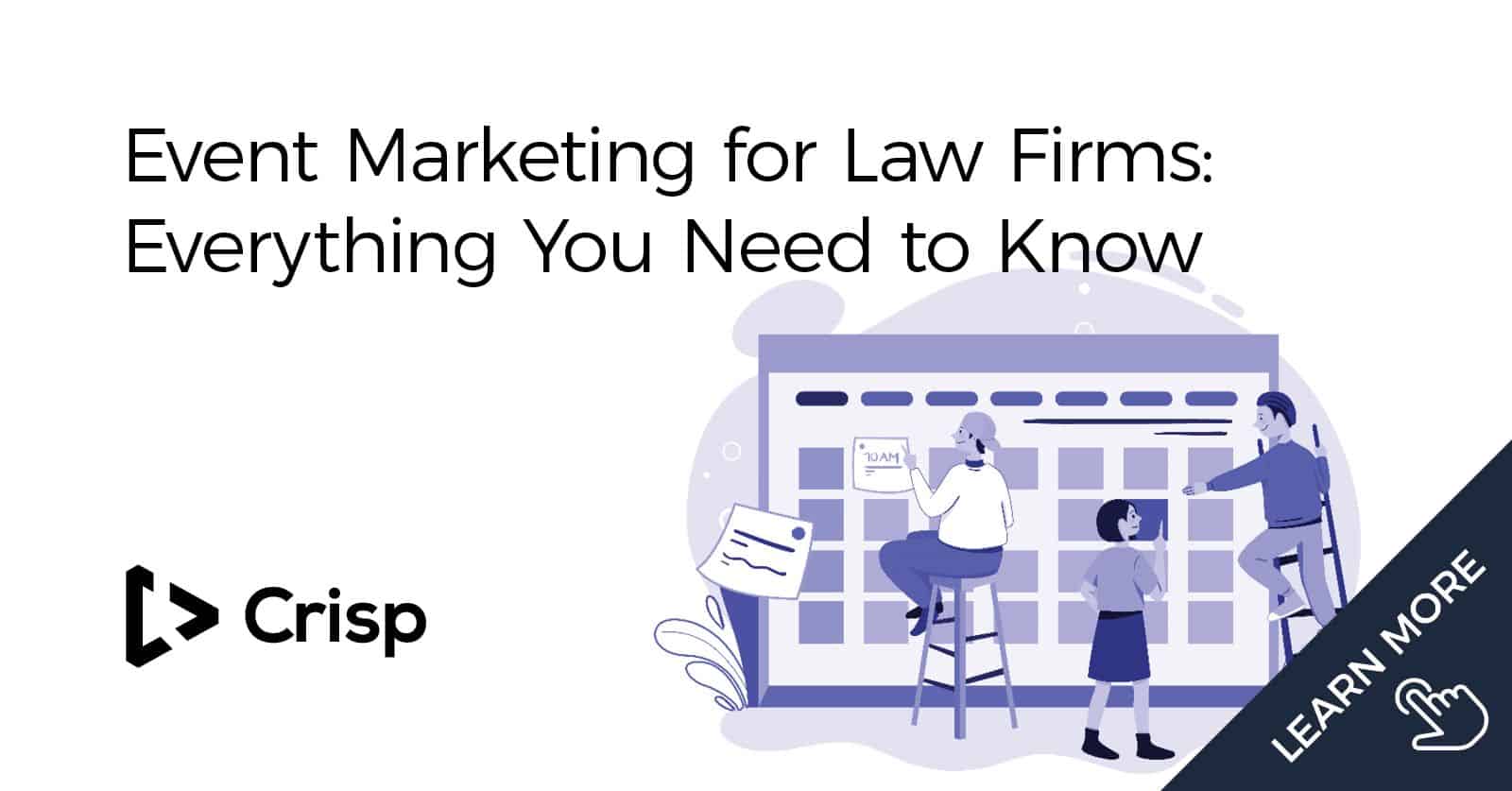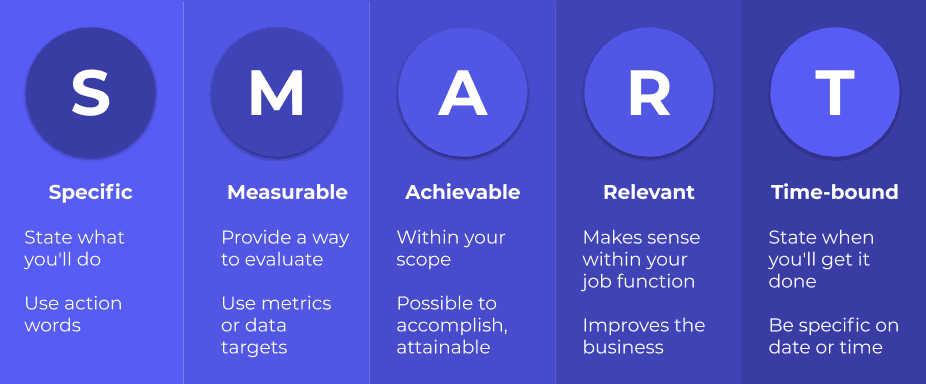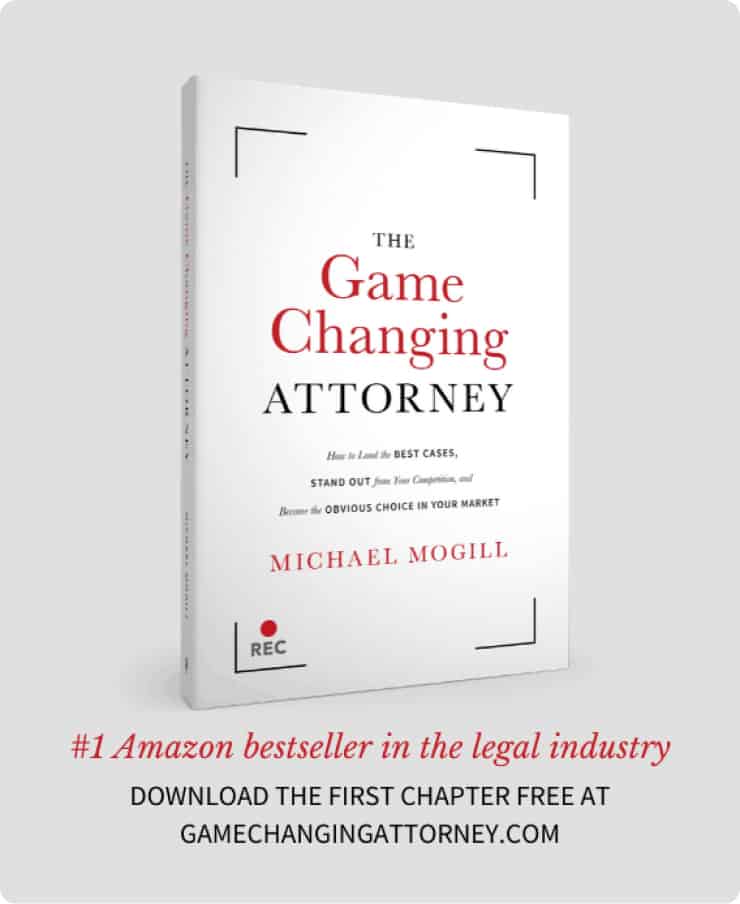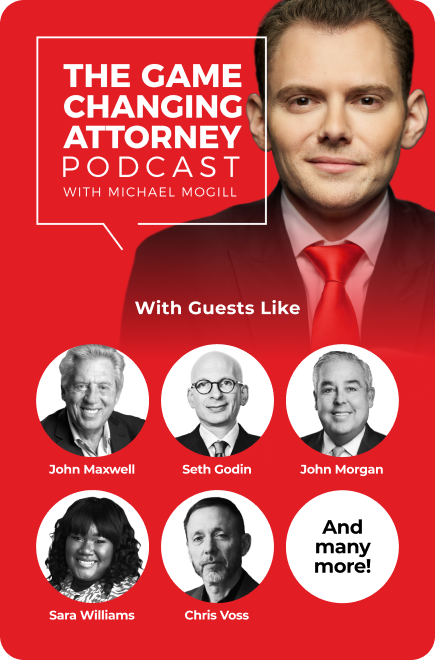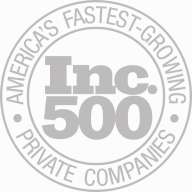This article was written by Alyssa Esker, VP of Marketing at Crisp. Alyssa has nearly 15 years of experience developing high-performing marketing campaigns and strategies for small business owners.
Let’s face it: our industry is social. Events are a huge part of the legal space. We have everything from the NTLs to the MTMPs to the CLEs and even our own Game Changers Summit.
These are crucial events every year that are meant to make you a better lawyer, leader, and owner of your business.
But what about your own events as a firm? Are you getting out there in your community and hosting Q&As or get-togethers with your clients to increase loyalty (and let’s face it, referrals)? What about speaking engagements to recruit the next generation of lawyers to come work at your firm?
There are plenty of reasons your firm should be hosting events. In 2022, 87% of small and medium-sized business owners plan to use events to grow in their business. So how do you get started?
Well good thing, you’ve got us in your corner: the marketers behind the largest law firm growth conference in the world and the world-class hands-on workshops with Michael Mogill.
What we will cover:
Let’s get started!
Choosing the Right Event Type
There are many types of events you can host as a law firm, but the most relevant and important to building your business are:
- Community events
- Client appreciation events
- Workshops/seminars
There are also considerations you need to make about whether the event will be in-person, virtual, or hybrid.
Community Events
Community events are the bread and butter of any good law firm’s events division and probably the most frequently used.
These events can be opportunities for your firm to partner with organizations you are passionate about in your community to do some good. The key to a proper community event is to pick an organization that aligns with your law firm’s brand purpose.
When putting together a community event, determine if you will have it co-hosted — working with the organization and making it affiliated with that organization 100% or self-managed. If self-managed, you can still tie the event to the organization you are benefiting, but you position it as a fundraiser on that organization’s behalf.
The benefit of co-hosting is it provides instant credibility as well as increased reach to your event for promotion of the event. The downside is that you may have less control over the full event experience. A self-hosted community event can be more work, but gives you ultimate control over the experience, so keep these factors in mind when planning your community event.
Client Appreciation Events
Client appreciation events should become an annual part of your client experience strategy.
Invite all your clients to reconvene, reconnect, and celebrate the impact you have had on their lives. This is also a great way for your clients to meet each other and share their experiences. You have the unique opportunity to create a community of people who have gone through some harrowing experiences and come out better on the other side.
Client appreciation events can be casual (think even backyard barbecues) or more formal (cocktail parties) — but they need to represent your firm, and they need to keep in mind your client. If you are dealing with clients who have gone through highly traumatizing events, don’t plan a big fancy event that may make them uncomfortable. Go for something a bit more intimate. If your brand tone is much more casual and that is how you portray yourself in your marketing, steer towards a more family-style event.
The event needs to be authentic to you — and to your clients.
Workshops and seminars
Workshops and seminars may put you the most out of your comfort zone, but may give you a distinct competitive advantage from other law firms that are not putting themselves out there.
Whereas client appreciation and community events are about the firm and its community, workshops and seminars are about YOU and your thought leadership. It’s about the expertise you bring to the table and provides you an extra layer of credibility as the CEO of your law firm.
Examples of workshops and seminars include hosting lunch-and-learns at your office or open houses for prospective law students. Develop presentations on popular legal topics your ideal audience wants to learn more about.
Similarly to community events, workshops and seminars can be co-hosted. You can reach out to local universities, community centers, and organizations to find what content needs they have and where you can fill in and provide your expertise. This will require you to put yourself out there, but it’s guaranteed to build your credibility.
To see this type of event in action, check out what our Founder CEO Michael Mogill is doing with the Million Dollar Day.
Virtual Events
In 2022, it is expected that 40% of companies plan to increase their investment in virtual events with only 16% planning to remove virtual altogether.
Virtual events can be great (often reaching 80% more people than an in-person event), but they can lack the amount of engagement, experience, and energy typically associated with in-person events.
The best virtual events, in my humble opinion, are webinars. These are great virtual events and tools that can still perform well without having to build a ton of collaboration into the event. You can learn all about hosting your own webinars here.
Hybrid Events
A hybrid event could be a great option if you have multiple locations or have multiple target markets that may not always be conducive to meeting in one centralized location.
A good hybrid event should be a bit more than having an in-person component with a livestream of the event, but that is a viable option that is low-lift.
If you attended the EVOLVE Virtual Summit in June 2021, you saw an innovative virtual configuration that featured an interactive stage with live entertainment, videos, breaks, and many of the aspects you’d expect from an in-person conference. Law firm teams around the country even opted for team tickets that allowed them to attend virtually but provided them tools to meet together with mini-hosting parties.
Believe it or not, a really good hybrid event can cost just as much if not more than an in-person event, so if you are going to do a hybrid event, make sure the increased reach can make up for the increased cost.
In-Person Events
In-person events for your firm are probably the best way to go. There’s just really no substitute for that authentic connection, but just remember to stay flexible in case things do change.
How Events Build Business
95% of small business owners and marketers believe that in-person events can have a major impact on achieving their company’s primary business goals. Just think about it. As the host of the event, the invite and attendee list alone generates a whole new list of potential clients.
Events Build Your Brand
Hosting an event is also a powerful way to engage current and potential clients by initiating personal interactions that are much more valuable than just a phone call or email. These personal interactions are what build brand loyalty by humanizing your law firm’s brand (and you).
While physical office spaces have been a hot topic of debate, I have to assume that most of you have some sort of office or space that you’re proud of, that you’d like to show off as part of your physical identity, right? Hosting your own event gives you the opportunity to create an immersive experience and give your guests a real feel for what your law firm’s brand is like in-person.
Take us, for example. In 2021, we moved into our new headquarters, complete with a state-of-the-art training center to host workshops, trainings, and even parties. It’s become an immersive part of our brand and a way to improve the experience of our clients. Plus, it’s a powerful way to show our potential clients what it’s like to work with us.
Events Increase Buzz
Let’s face it, people talk about great events (bet you heard about our Summit After-Party).
You can do the same with your own events — but remember that they have to be good events to pay off.
“But pay off how, Alyssa?” Bet you are asking that right now, right? “Events like this can be so expensive!”
Yes, it can be expensive to throw an event, especially if you decide to host it at the Mercedes-Benz Stadium. (Who would do such a thing?)
I am not advocating at all that you throw an event like the Game Changers Summit. It would be crazy to book a stadium where professional teams play and try to fill it up with thousands of people for a legal event…but we’re a little crazy here at Crisp.
Even if you don’t take this large-scale approach, you can still have a great event at your office, your home, a restaurant, a hotel, a community center — wherever fits your law firm brand the best. AND you can still get a positive return on your investment.
Events Attract Revenue
Depending on the type of experience you’re putting together, here are ways you can “monetize” the event you are throwing:
- Make connections for referrals. Events with current clients or fellow law firm owners are a great way to build relationships. Make a positive impression and establish yourself as a trusted resource, so they think of you when there is someone in their circle that could use your services.
- Meet new potential clients to stay top of mind. Most potential clients won’t know they need you or won’t need you right away, but if they see you hosting a community event and being a good steward of their community, they will think about you first when they do need you.
- Get paid for your expertise. Be very careful with this one, but if hosting a seminar or lunch-and-learn for people who might have questions about a legal experience (for example: DUI, divorce, writing a will), you can provide them with valuable information and a free consultation that would establish you as a credible expert and supportive presence. That way, when they do need your services, they’ll think of you first. Ideally the initial event should be free, but you can absolutely provide yourself as a solution and conduct a follow-up. At the end of the day, you care about these people — so providing this as a platform to them is natural.
The goal here is to create relationships and build a list. You can create natural follow-ups after your events to stay top-of-mind so that when the attendees need you down the line, you are the first firm they think of.
Building a Plan to Market Your Event
Now to the good stuff. Once you have determined the type of event you are going to host and how you are going to leverage it for your firm’s brand, it’s time to market the event. No empty event is a good event.
Marketing your event has five main components:
- Goals
- Budget
- Benefits & Messaging
- Content Types & Channels
- Promotion Plan
Defining Your Event’s Goals
Start by defining your event’s goals. Yes, there’s the revenue aspect, but you need to think about other goals as to how you want this event to impact your brand.
The tried-and-true framework to set any goals is always to keep them SMART:
- Specific
- Measurable
- Attainable
- Relevant
- Time-bound
Great example of goals to set would be to grow your list of potential clients by X number of names by the end of the event and gain X number of potential client referrals within two weeks following the event.
To measure this, make sure you have a way of tracking people registering for and attending your events. There are many easy to use tools, such as Typeform, Eventbrite, or Bizzabo.
The level of complexity you’ll need in a tracking tool will depend on the size of your event, so keep that in mind as some tools are better for larger events than others.
Setting Your Event Budget
Speaking of tools, they are something you need to consider as part of your budget.
Your event budget will need to include things like:
- Tools to set up assets like a registration site
- Rental space
- Food and drinks
- Entertainment
- Ad spend to promote your event on social media
- Printing spend — do you want any signage, leave-behinds, and so on?
- Donations — are you going to match donations if you host a community event with a non-profit?
These costs can add up quickly, but you can still throw a great event being relatively minimalistic. Just make sure your experience is something you would be proud to tie your firm’s name to.
Clarifying Your Event Messaging
Next up are your event benefits, messaging, and positioning. This is the most crucial factor to get right.
Your event positioning should be a concise statement that is consistently repeated that sums up who the event is for.
For example, the Game Changers Summit is positioned as “the largest law firm growth conference on Earth, where thousands of the fastest growing law firm owners in the country gather together.”
This statement contains the WHAT the event is, the specific WHO it’s for, and WHAT they will do at this event. We repeat this in all of our messaging.
Yours might look something like: “A community event for passionate neighbors looking to bring safety back to the streets.”
Remember again to keep it tied to your brand at all times.
Now it’s not just enough to have the positioning of your event. You need to explain the benefits of attending. Clearly communicate the value it will bring to your attendees — and don’t just hype up the list of swag they will walk away with. Give them at least three things they will take away from your event.
The Game Changers Summit provides the following benefits to attendees:
- World-class experience in everything from the parties to the speakers to the food to the videos
- The chance to be in the room with the top law firm owners in the country to connect and learn from them face-to-face
- Speakers you can’t get anywhere else covering topics such as the marketing strategies the fastest growing law firms are using to secure the BEST cases, how to hire & retain the best talent, and how to create a culture of winning
Much better than just a list of speakers and generic topics, right?
Wrapping these things together, you now have the messaging for your event and how you should promote it to drive attendance. So let’s get you those attendees next.
Choosing Content Types and Promotion Channels for Your Event
All good messaging needs the right content types to talk about your event. You should have a solid mix of all types of content to reach as many people as possible that you want to attend your event.
Content types to consider include:
- Direct mail. This is vital to a good event, especially a community event. You can usually get a good list of addresses and residents fairly easily to build a delivery list. Postcards, letters, and books all make great direct mail pieces to distribute.
- Event website. This could be as simple as a Facebook or LinkedIn Event, something built into another platform such as Eventbrite, or a completely dedicated website. Any website should include time and date, location, vanity URL, FAQs, benefits, and a call to action
- Social media. You cannot avoid social media when promoting an event. You should plan to share plenty of content on social media, including text, graphics, photos, videos, and so on — and don’t forget about headers for your social media pages.
- Email. These can be marketing style emails with graphics and reasons why you should attend, an included section in weekly newsletters, or basic text-only emails.
- Long-form content. A great blog post and press release announcing your event are important pillar content to pull from.
- Video. One of your most powerful tools will be an event sizzle reel to highlight what people can expect from your event. You don’t necessarily need something fancy; a simple phone recording of you personally explaining the event can go a long way.
Creating an Event Promotion Plan
Once you have all your content together, you are ready for your promotion plan! Every great promotion plan starts with a content calendar. Your content calendar should be something that is easy to track and can be simple such as using built-in templates for Google Sheets, Google Docs, or even Google Calendar. You can also use more sophisticated tools such as Monday.com or CoSchedule.
The content calendar for your promotion plan should include the post date, channel, and audience.
The best ways to promote your event are:
Post about it daily on social media. Don’t worry about burning out your audience — people need to see a message at least seven times to even remember it.
- Use hashtags related to your event to pick up natural increased visibility.
- Host social media contests to get a special experience related to your event or prize that they have to be present to receive.
- Use ad dollars — no one will see your organic social posts.
Email at least three times a week. Increase to daily emails as you get closer to the event and even as much as 2-3 times a day the 72 hours prior to the event.
- Have a mix of promotional emails and open-ended emails that elicit a response from potential attendees — even a no is a chance for a yes.
Don’t underestimate the value of a phone call to promote your event.
- Voicemail drops are a technique that drops a voicemail into someone’s phone without ringing. This creates a great touchpoint and follow up opportunity (Slybroadcast is a great tool).
Share your event with your network. Identify peers and partners who would be willing to share on your behalf to get the word out to an expanded audience.
The one area of your promotion plan that often gets most overlooked is confirming attendance. Be honest. Have you ever accepted an invite to a webinar or a happy hour and said yes…but then never showed up? It happens all the time.
BUT DON’T LET IT HAPPEN TO YOUR EVENT.
To maximize attendance, make sure you are continuing to market to your registrants after they sign up. Remind them of all the reasons they should attend. Tell them about the benefits. Give them a countdown. Give them some homework. Get them bought in and excited about the event so that they come.
Final Thoughts
Events are a complex and time intensive prospect. However, consumers who attend events are 85% more likely to remember the company putting on that event and 70% more likely to become a client.
So while you may not need to make the next Game Changers Summit happen, you can make real impacts for your firm and your brand by connecting with your community in a tangible and face-to-face way through events.
But just remember, when it comes to events:
There is no such thing as too many emails, too much social media posting, or too much relentlessness. It takes what it takes.
